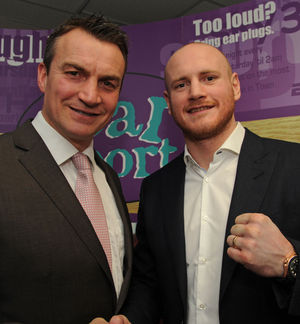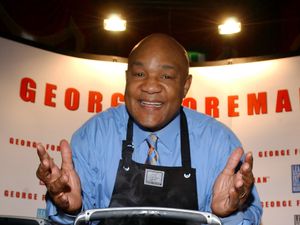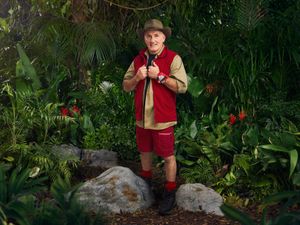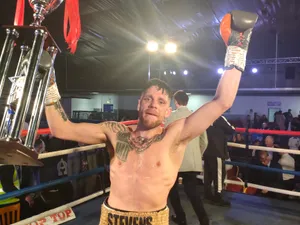Big Interview: Richie Woodhall remembers his world champion years
Very few boxers ever get to call themselves a world champion.
Even fewer get to realise a life-long dream in their home town, in front of friends and family who have been with them every step of the journey.
It happened to Richie Woodhall, one cold night at Telford Ice Rink in March, 1998.
Two decades on, the memories still shimmer.
“That moment when they raised my hand was just incredible,” he says. “It’s the realisation you have achieved something you’ve wanted all your life.
“My entire life, as a boxer, was like being on a quest. That night I reached the end of it.
“I honestly would not have wanted to win it anywhere else. I’d been to Las Vegas and Madison Square Garden in New York. But for me, it was always Telford. I had a lot of loyal fans and to win it in front of them was something special.”
Woodhall can now reflect that, had it not been for misfortune, he would probably have reached the pinnacle of his career some 18 months earlier, 3,000 miles from home.
At that point unbeaten and yet to even be knocked down in a 21 fight career, many fancied Woodhall would have too much for WBC middleweight champion Keith Holmes, even in the American’s home town of Washington DC.
But while the first defeat of his professional career might have been devastating at the time, it undoubtedly sowed the seeds for future success.
“The Holmes fight was a bad experience but I learned so much about boxing on that trip,” says Woodhall. “In many respects, it opened my eyes.
“I’d had micro surgery on my elbow before I went, it was that bad. But pulling out of the fight never felt like an option and my promoter, Mickey Duff, reckoned I might have to wait 18 months for another chance.
“The biggest problem with a lot of fighters is they think they are better than they are. I was no different.
“At that point in my career I had never been beaten as a professional and I did feel unbeatable. “But I’d never experienced anything like that before. I learned what it was truly like to be the challenger. He (Holmes) had the crowd with him and the atmosphere was very hostile. Then you had all the dirty tricks in the build up; people knocking on my door at four in the morning and car journeys which should have taken 20 minutes taking two hours.
“Some of the things which went on I had only seen before in Rocky films!
“But even though I lost, by the end of it I knew I could go anywhere in the world and fight.
“I’d not come back with the belt but the experience had helped me grow as a man. I had become physically stronger.”
Medical science suggested otherwise. More surgery was required on his troublesome elbow and there were even doctors who told Woodhall he should retire.
He was having none of it.
“It was mind over matter,” he says. “In my head I believed I was on the mend. By that point I was convinced I had what it takes to become a world champion.”
Sure enough, just one fight after moving up to super-middleweight, Woodhall was given a shot at WBC champion Thulani ‘Sugar Boy’ Malinga.
The South African was a veteran of 52 fights but, even at the age 42, commanded respect having stunned Nigel Benn to first take the belt only two years previously.
Yet Woodhall was able to establish a tactical gameplan to best the veteran thanks to the experience and know-how of another wise old head, namely his dad and coach, Len.
Woodhall explains: “I remember a few days before the fight dad turned around to me and said: ‘He won’t respect you. In the ring, he’s going to come for you.’
“At first, I thought the opposite. Malinga wasn’t a brawler, he was a boxer.
“But then at the press conference, he completely disregarded me, making some comment about me being a good middleweight.
“Dad was right. From then on I expected him to come forward and we drew up the plan accordingly.”
Of the night itself, what sticks in Woodhall’s mind most was the heat.
“I’d fought at the ice rink before and a few people had commented afterwards about how chilly it was,” he says. “The night of the Malinga fight, it was roasting inside, even though the weather outside was bitterly cold.
“The capacity of the venue was 3,000 and I’ve been told there were 4,000 in the building. I wouldn’t be surprised if there were more, I knew a couple of the guys who worked on the door and afterwards they said they were just waving people in.”

With the elbow issues meaning he was unable to throw straight right punches, Woodhall’s plan was to keep Malinga at bay with the jab and then hit his opponent with right hooks when the fighting got close.
“Throwing the hook always carries a bit of risk because you are close to your opponent,” he says.
“It was a case of throwing it and then getting out of range as quickly as possible. That meant I was always moving. The big question was whether I could keep up the tempo for 12 rounds?”
Woodhall could, winning the fight and the belt by a wide margin on all three judges’ scorecards.
There is nothing in sport which can match the glamour of a world title fight. Many fans have no doubt fantasised about what a victorious fighter experiences in the hours following the final bell.
Woodhall, a married father-of-three, went home and had a cup of tea.
“That’s what I always did,” he says. “After every fight I always used to look forward to sitting down at home, having a chat with my wife and having a cup of tea.
“You can’t sleep. The adrenaline is still pumping.
“On the night I won the world title I took the dog for a walk at about 3am.
“I went off the up the hill to Lightmoor Wood and I distinctly remember standing in a clearing, just me and the dog.
“All I could hear was the ringing in my ears from the crowd even hours later. It gave a whole new meaning to the phrase ‘silence is deafening’!”
From the next morning, comes another, much more poignant memory.
Woodhall, still awake on the adrenaline, visited the home of his first amateur coach Harry Grice in order to fulfil a promise he had made several years before.
“Harry’s son Niki was one of my best pals growing up. We must have sparred thousands of rounds together at Woodside Boxing Club,” says Woodhall.
“Niki was killed in a road accident in 1992. It was devastating for his family.
“I remember telling Harry: ‘When I win my world title, we are going to lay the belt over Niki’s grave.
“So that is what we did. Me, Harry, his wife and Niki’s brother. We all went up to Lincoln Hill Cemetery. It was an amazing moment. It had to be done.”
The world title win is one part of a year of anniversaries for Woodhall.
In late September, it will be 30 years since he won a bronze medal at the Seoul Olympics while, next month comes an even more significant personal milestone, when he turns 50.
“It’s crazy to think I’m about to turn 50, I can still vividly remember the day I left school,” he says.
“I don’t fear it. It is part of life and I enjoy my life.”
Roy Jones Junior, who defeated Woodhall in the Olympic semi-final, has only recently hung up his gloves at the age of 49, after a glittering career in which he became arguably the finest fighter of his generation.
Woodhall hasn’t set foot in the ring since losing a WBO title tilt to Joe Calzaghe in December 2000.
“I can understand why people find it hard to walk away or why so many go back,” he says.
“But on the night I won the title, there was almost a tinge of sadness.
“One of the first thoughts in my head was ‘What am I going to win now?’
“If I’m honest, I was never quite the same from that point on. I never had the same hunger.
“I could have carried on for the money. But it was never about that for me.
“Boxing is a brutal business and if you are even one percent below the required level, you’re in trouble.
“I was also lucky that at the time I was retiring, the BBC were getting into the sport on the back of Audley Harrison winning Olympic gold.
“I was offered the chance to do a bit of commentary and nearly 20 years on I’m still doing it now.”
Woodhall remains a familiar face and voice on TV and radio. He also remains, happily, in Telford.
“I could have lived all over the world. I’ve had offers to go and work in Australia, Canada and elsewhere,” he said.
“But I’ve never wanted to be anywhere else. I’m a Woodside kid and that’s what I’ll always be.”



